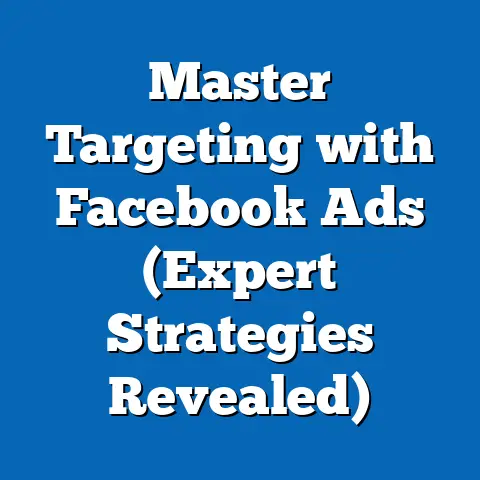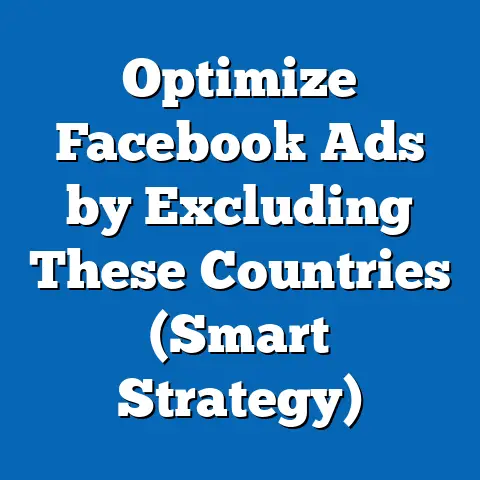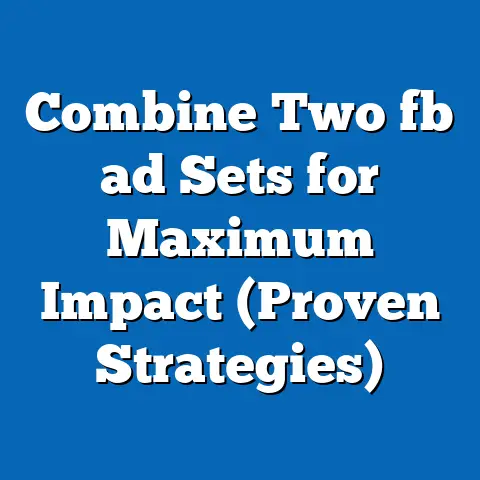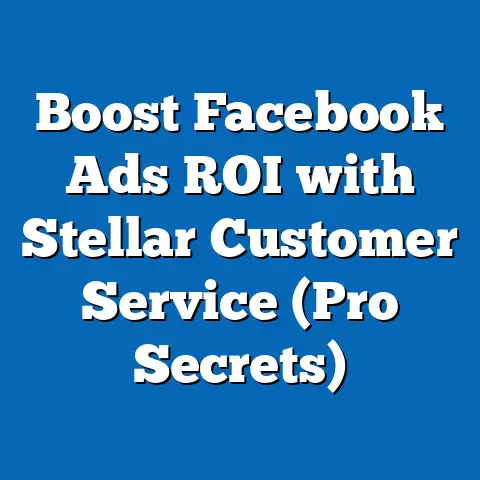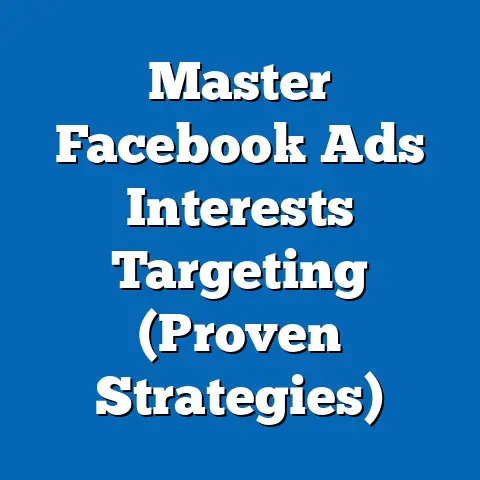End Political Ads on Facebook (Ultimate Guide)
In a world where we connect with friends over baby photos and vacation updates, it seems almost absurd that Facebook, now Meta, has become a modern-day coliseum for political gladiators.
The irony isn’t lost on me, and I suspect it isn’t lost on you either.
We flock to these platforms for connection, yet they’ve become increasingly fraught with division and misinformation, particularly during election cycles.
The question isn’t just can we end political ads on Facebook, but should we?
And if so, how?
This guide dives deep into the complex world of political advertising on Facebook, exploring its rise, its impact, the arguments for and against a ban, and what the future might hold.
The Rise of Political Advertising on Facebook
Political advertising isn’t new, but its digital form is a game-changer.
I remember a time when political ads meant glossy mailers and 30-second TV spots.
Now, they’re hyper-targeted, data-driven, and capable of reaching millions with a single click.
Historical Context
The evolution of political advertising has taken some interesting turns.
Before the internet, campaigns relied heavily on traditional media: newspapers, radio, and television.
These channels were expensive and offered limited targeting capabilities.
You essentially blasted your message to everyone, hoping it would resonate with enough people to win.
The advent of the internet, and particularly social media, changed everything.
The 2008 Obama campaign is often cited as a pivotal moment.
Obama’s team recognized the power of online organizing and used social media to mobilize volunteers, raise money, and spread their message.
It was a watershed moment, demonstrating the potential of digital platforms to connect with voters on a personal level.
The Mechanics of Facebook Ads
Facebook’s advertising system is incredibly sophisticated.
At its core, it’s a platform that connects advertisers with users based on a vast array of data points.
These data points include demographics, interests, behaviors, and even connections to other users.
- Targeting: Advertisers can target incredibly specific audiences.
Want to reach women aged 35-45 who are interested in environmental issues and live in California?
Facebook can do that.
This level of granularity allows campaigns to tailor their messages to resonate with specific voter segments. - Algorithms: Facebook’s algorithms play a crucial role in determining which ads users see.
These algorithms analyze user behavior to predict what ads they’re most likely to engage with.
This means that political ads are often shown to users who are already predisposed to agree with the message, creating echo chambers and reinforcing existing beliefs. - Ad Formats: Facebook offers a variety of ad formats, from simple image ads to video ads to lead generation ads.
This allows campaigns to create engaging content that captures users’ attention and encourages them to take action.
The growth of political ad spending on Facebook has been staggering.
According to Statista, political ad spending on social media platforms, including Facebook, reached billions of dollars in recent election cycles.
This trend shows no sign of slowing down, as campaigns increasingly rely on digital advertising to reach voters.
The Center for Responsive Politics also tracks political ad spending, providing valuable insights into the financial dynamics of political campaigns.
Takeaway: Political advertising has evolved from broad-based traditional media to hyper-targeted digital campaigns.
Facebook’s sophisticated advertising system allows campaigns to reach specific voter segments with tailored messages, contributing to a surge in political ad spending.
The Impact of Political Ads on Society
The impact of political ads extends far beyond simply informing voters.
They shape public opinion, influence behavior, and can even contribute to the spread of misinformation.
Shaping Public Opinion
Political ads are designed to persuade.
They use a variety of techniques, from emotional appeals to logical arguments, to sway voters’ opinions.
The effectiveness of these ads depends on a number of factors, including the quality of the message, the targeting of the audience, and the overall political climate.
I’ve seen firsthand how a well-crafted ad can shift public perception.
Think back to the 2004 “Swift Boat” ads that targeted John Kerry.
Regardless of their veracity, those ads undeniably impacted his campaign and public image.
Similarly, in more recent elections, we’ve seen ads that effectively demonize opponents or paint a candidate as a champion of the people.
- Case Studies: Consider the 2016 US presidential election.
Both the Trump and Clinton campaigns invested heavily in Facebook advertising, using different strategies to reach voters.
Trump’s campaign focused on emotional appeals and targeted specific voter segments with tailored messages.
Clinton’s campaign emphasized policy details and attempted to mobilize traditional Democratic voters. - Psychological Effects: Political ads can have a significant psychological impact on voters.
Studies have shown that negative ads, in particular, can increase anxiety and distrust in political institutions.
Positive ads, on the other hand, can boost enthusiasm and encourage voter turnout.
The Spread of Misinformation
One of the biggest concerns about political advertising on Facebook is its role in the spread of misinformation.
Facebook’s algorithms can amplify false or misleading content, particularly if it’s engaging or emotionally charged.
This can have serious consequences for voter behavior and public discourse.
I’ve personally witnessed the rapid spread of fake news on Facebook during election cycles.
A fabricated story can go viral in a matter of hours, reaching millions of users before fact-checkers can debunk it.
By the time the truth comes out, the damage is often done.
- Facebook’s Role: Facebook has taken steps to combat misinformation, including partnering with fact-checkers and labeling false content.
However, these efforts have been criticized as being too little, too late.
The sheer volume of content on Facebook makes it difficult to effectively monitor and remove misinformation. - Real-World Impact: The spread of misinformation can have real-world consequences.
Studies have linked the spread of fake news to decreased voter turnout, increased political polarization, and even violence.
Takeaway: Political ads on Facebook can significantly shape public opinion, but they also contribute to the spread of misinformation.
Facebook’s algorithms can amplify false or misleading content, making it difficult to combat the spread of fake news.
The Case for Ending Political Ads on Facebook
The arguments for banning political ads on Facebook are multifaceted, ranging from the erosion of trust to the potential for manipulation.
Erosion of Trust
Political ads, particularly those that are negative or misleading, can erode trust in democratic institutions and social media platforms.
When voters are bombarded with biased or false information, they become cynical and disengaged.
I’ve seen this firsthand in my own social circles.
People are increasingly skeptical of everything they see online, particularly during election cycles.
They question the motives of politicians, the accuracy of news reports, and even the integrity of social media platforms.
- Expert Opinions: Political analysts have warned about the dangers of eroding trust in democratic institutions.
They argue that it makes it harder to govern effectively and undermines the legitimacy of elections. - Restoring Trust: Restoring trust requires a multi-pronged approach.
It involves holding social media platforms accountable for the content they host, promoting media literacy among voters, and encouraging responsible political discourse.
Potential Solutions and Alternatives
If we were to ban political ads on Facebook, what would be the alternatives?
The good news is, there are many.
- Grassroots Organizing: One alternative is to focus on grassroots organizing.
This involves building relationships with voters at the local level, engaging in face-to-face conversations, and mobilizing volunteers. - Town Halls and Community Forums: Another alternative is to hold town halls and community forums where candidates can engage directly with voters.
This allows for more substantive discussions and reduces the reliance on sound bites and slogans. - Public Funding of Elections: Public funding of elections is another potential solution.
This would reduce the influence of big money in politics and level the playing field for candidates. - Alternative Platforms: Candidates could shift their focus to alternative platforms that prioritize authentic engagement over paid advertising.
This could include platforms like Mastodon or even more traditional avenues like local newspapers and radio.
Takeaway: Political ads can erode trust in democratic institutions and social media platforms.
Potential solutions include grassroots organizing, town halls, community forums, and public funding of elections.
The Challenges of Banning Political Ads
Banning political ads on Facebook isn’t a simple solution.
There are legal, practical, and ethical challenges to consider.
First Amendment Considerations
In the United States, the First Amendment protects freedom of speech.
Banning political ads could be seen as a violation of this right.
The Supreme Court has consistently held that political speech is entitled to the highest level of protection.
I’m not a lawyer, but it’s clear to me that any attempt to ban political ads would face legal challenges.
The courts would have to weigh the benefits of the ban against the potential infringement on free speech rights.
- Legal Perspectives: Constitutional experts have different opinions on whether a ban on political ads would be constitutional.
Some argue that it would be permissible if it’s narrowly tailored to address specific harms, such as the spread of misinformation.
Others argue that it would be an unconstitutional restriction on political speech. - Balancing Act: The key is to strike a balance between regulating political discourse and protecting free expression.
This is a difficult task, and there’s no easy answer.
Practical Implications
Even if a ban on political ads were legally permissible, it would be difficult to enforce.
Facebook is a vast and decentralized platform, with billions of users and millions of advertisers.
It would be challenging to identify and remove all political ads, particularly those that are disguised as news articles or user-generated content.
I’ve seen how quickly misinformation can spread on Facebook, even with the platform’s efforts to combat it.
Trying to enforce a complete ban on political ads would be like playing a game of whack-a-mole.
- Logistical Challenges: Enforcing a ban would require significant resources, including human moderators and sophisticated algorithms.
It would also require clear definitions of what constitutes a “political ad,” which can be surprisingly difficult to determine. - Potential Pushback: Political campaigns and advertisers would likely resist a ban on political ads.
They might argue that it’s unfair or that it gives an advantage to incumbents.
Takeaway: Banning political ads on Facebook raises First Amendment concerns and presents significant practical challenges.
Enforcing a ban would be difficult, and political campaigns and advertisers would likely resist it.
The Future of Political Advertising in the Digital Age
Political advertising is constantly evolving.
New technologies and platforms are emerging, and campaigns are finding new ways to reach voters.
Emerging Trends
Several trends are shaping the future of political advertising.
- Influencer Marketing: Influencer marketing is becoming increasingly popular.
Campaigns are partnering with social media influencers to reach voters through authentic and engaging content. - Alternative Platforms: Campaigns are diversifying their advertising strategies and exploring alternative platforms, such as TikTok, Twitter (now X), and Reddit.
- AI and Machine Learning: AI and machine learning are being used to personalize ads and target voters with even greater precision.
I’ve noticed that campaigns are becoming more sophisticated in their use of data and technology.
They’re using AI to analyze voter sentiment, identify potential supporters, and craft messages that resonate with specific audiences.
Envisioning a New Landscape
What would a future without political ads on Facebook look like?
It’s hard to say for sure, but I can imagine a few possibilities.
- More Authentic Engagement: Without the noise of paid advertising, voters might be more likely to engage in authentic conversations and seek out diverse perspectives.
- Stronger Local Communities: Campaigns might focus more on building relationships at the local level, strengthening communities and fostering civic engagement.
- Greater Media Literacy: Voters might become more critical consumers of information, better able to distinguish between fact and fiction.
Takeaway: The future of political advertising is uncertain, but emerging trends include influencer marketing, alternative platforms, and AI-powered personalization.
A future without political ads on Facebook could lead to more authentic engagement, stronger local communities, and greater media literacy.
Conclusion
We began with the irony: a platform designed to connect us has become a battleground for political division.
As I’ve explored the complex landscape of political advertising on Facebook, it’s become clear that there are no easy answers.
Banning political ads is a complex issue with legal, practical, and ethical considerations.
While it could potentially reduce the spread of misinformation and restore trust in democratic institutions, it also raises concerns about free speech and the ability of campaigns to reach voters.
Ultimately, the conversation around political ads on Facebook is not just about advertising; it’s about the future of public discourse and democratic values.
It’s about finding ways to promote informed decision-making, encourage civic engagement, and protect the integrity of elections.
Whether we choose to ban political ads or not, we must continue to grapple with these challenges and strive to create a more informed and engaged electorate.
The future of our democracy may depend on it.

